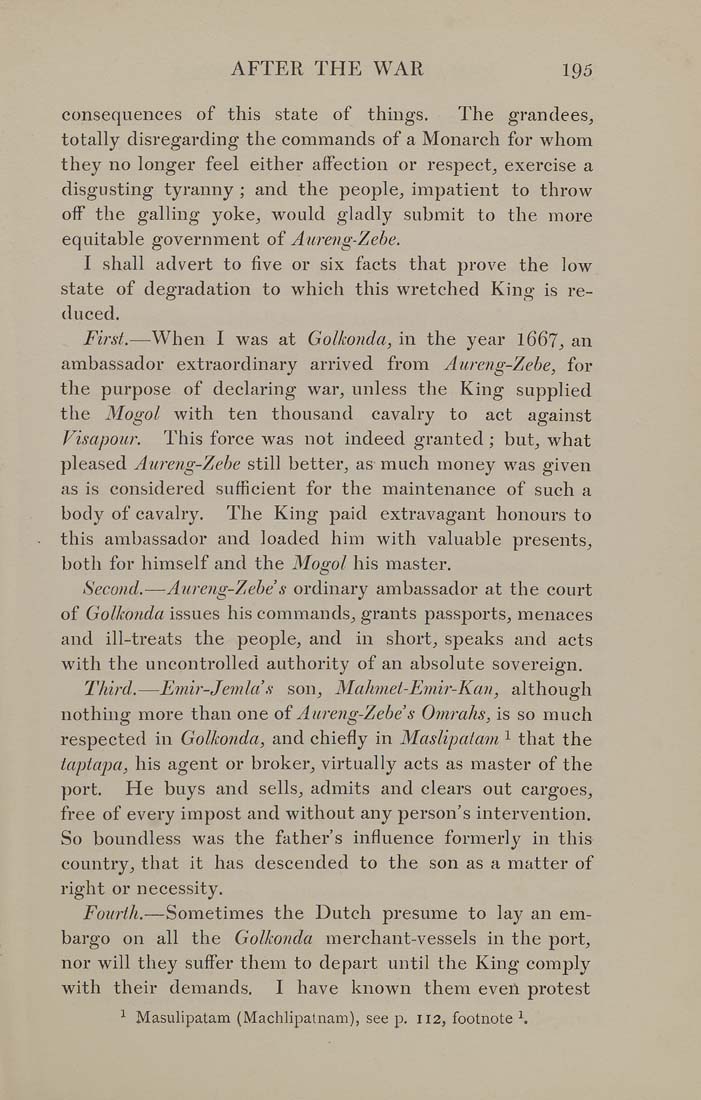AFTER THE WAR I95
consequences of this state of things. The grandees,
totally disregarding the commands of a Monarch for whom
they no longer feel either affection or respect, exercise a
disgusting tyranny ; and the people, impatient to throw
off the galling yoke, would gladly submit to the more
equitable government ot Aureng-Zebe.
I shall advert to five or six facts that prove the low
state of degradation to which this wretched King is re¬
duced.
Finsi.—When I was at Golkonda, in the year 1667, an
ambassador extraordinary arrived from Aureng-Zebe, for
the purpose of declaring war, unless the King supplied
the Mogol with ten thousand cavalry to act against
Visapour. This force was not indeed granted; but, what
pleased Aureng-Zebe still better, as much money was given
as is considered sufficient for the maintenance of such a
body of cavalry. The King paid extravagant honours to
this ambassador and loaded him with valuable presents,
both for himself and the Mogol his master.
Second.—Aureng-Zebe's ordinary ambassador at the court
of Golkonda issues his commands, grants passports, menaces
and ill-treats the people, and in short, speaks and acts
with the uncontrolled authority of an absolute sovereign.
Third.—Emir-Jemla's son, Mahmet-Emir-Kan, although
nothing more than one ot Aureng-Zebe's Omrahs, is so much
respected in Golkonda, and chiefly in Maslipatam 1 that the
laplapa, his agent or broker, virtually acts as master of the
port. He buys and sells, admits and clears out cargoes,
free of every impost and without any person's intervention.
So boundless was the father's influence formerly in this
country, that it has descended to the son as a matter of
right or necessity.
Fourth.—Sometimes the Dutch presume to lay an em¬
bargo on all the Golkonda merchant-vessels in the port,
nor will they suffer them to depart until the King comply
with their demands. I have known them even protest
' Masulipatam (Machlipatnam), see p. 112, footnote ^,
|








